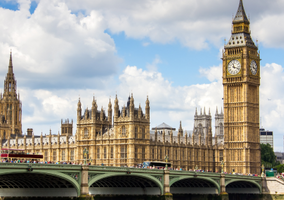The UK government should challenge growing restrictions on civil society, according to Bond.
Its newly published manifesto, A Global System for People and Planet, has been created with input from its 350 member organisations.
Bond sets out the steps the next UK government could take to help secure a global system for people and the planet, ensure the delivery of the Sustainable Development Goals (SDGs) and evolve the UK’s global role from that of a donor to a development partner acting in solidarity.
It states that there needs to be a fundamental shift in the global development system.
The manifesto adds that successive UK governments have failed to adequately address “a number of global system failures which lie at the root of global poverty, inequality and exclusion, and which the UK has contributed to as a result of its colonial and economic history”.
Key manifesto asks
It states that the UK government should protect and promote rights, freedoms and civic space.
The manifesto reads: “There is a growing trend of governments reducing democratic space and increasing restrictions on civil society.
“Globally, democratic space is at its lowest level for decades, the number of governments that are introducing significant restrictions on civil society is growing, and legislation is increasingly being used to restrict the ability of civil society organisations to protest and campaign.”
To address these challenges, the government should work with banks to enhance financial access for NGOs and small charities by increasing their risk appetite and addressing legal and administrative barriers to supporting NGOs.
It should also remove restrictions on civil society campaigning domestically, and work with other governments to reverse restrictions on civic space in public debate and policymaking.
The UK’s official development assistance (ODA) budget was reduced from 0.7% to 0.5% of UK gross national income in 2021, and in 2022 almost a third of this budget was spent in the UK.
“These decisions have weakened the UK’s ability to support vulnerable countries and communities when they have needed it most,” the manifesto reads.
It calls for the return of ODA to the previous 0.7% of gross national income and urges new and additional resources for meeting global climate finance commitments.
It also calls on the government to actively promote locally led approaches to development and humanitarian assistance and to challenge power imbalances and racism in the development sector, addressing “how structural racism is reflected in partnerships, organisations and interactions, and commit to addressing racism in a measurable and demonstrable way”.
The manifesto also calls for an equitable and sustainable international financial system that works for people, nature, and the climate, and for the government to recommit to the SDGs.
It states that the UK should “do our fair share to tackle the global climate and biodiversity crises” and develop a new approach to UK trade and private sector investment.
The UK government should also promote stability, security and effective crisis response, it says.
New inquiry launched
The International Development Committee (IDC) has launched an inquiry into the approach of the Foreign, Commonweath & Development Office (FCDO) to supporting civil society and civil society organisations through its programming. The Committee is now inviting written evidence from individuals or organisations, by Monday 29 April.
This will address questions such as the strengths and weaknesses of the FCDO's approach to strengthening civil society in aid-recipient countries as part of its wider development strategy, and the role of UK diplomats and staff in supporting civil society and civil society organisations.
Gideon Rabinowitz, director of policy and advocacy at Bond, said: “We welcome the IDC’s new inquiry into the government’s approach to supporting civil societies globally.
“Democratic space globally is at its lowest level for decades and more must be done to protect civil society groups and human rights defenders worldwide.
“The government also needs to do more to support rights and freedoms here in the UK. Over the past few years, legislation has been increasingly used to restrict the ability of civil society organisations and charities to protest and campaign.
“The UK’s domestic actions must reflect the international commitments it has made to promote and protect open societies and human rights.”
Related Articles












